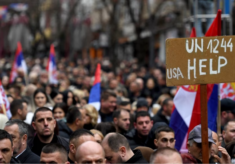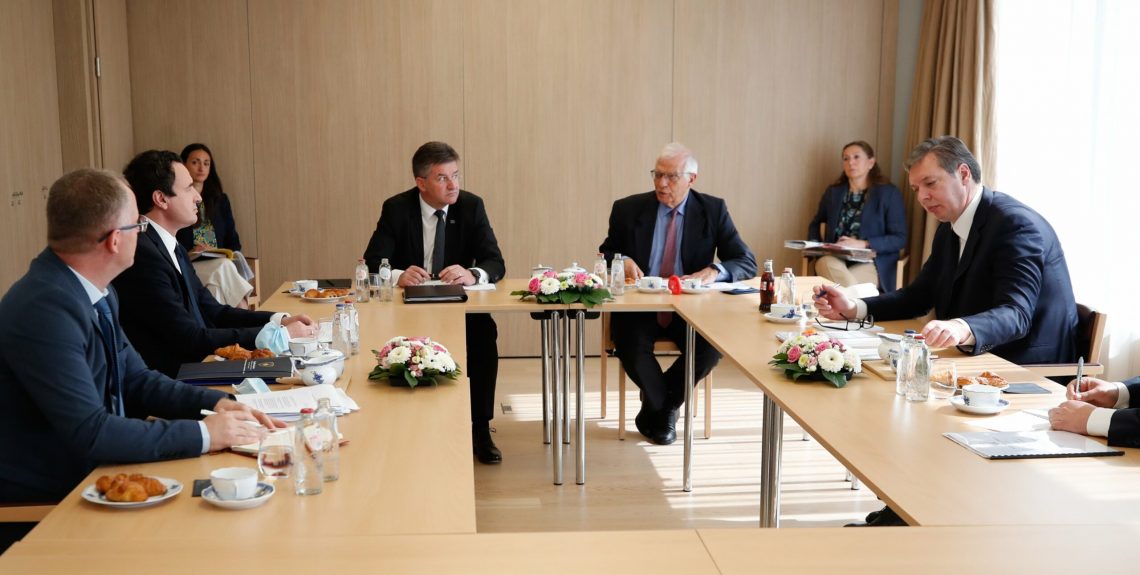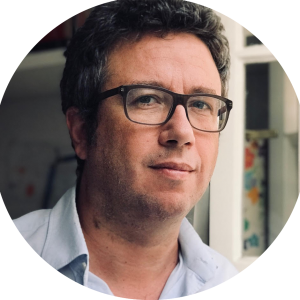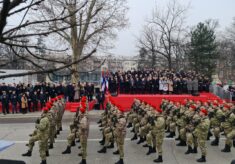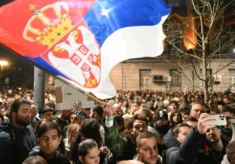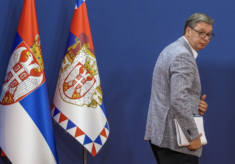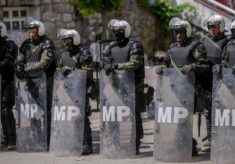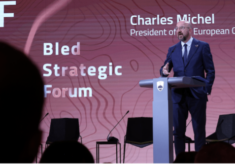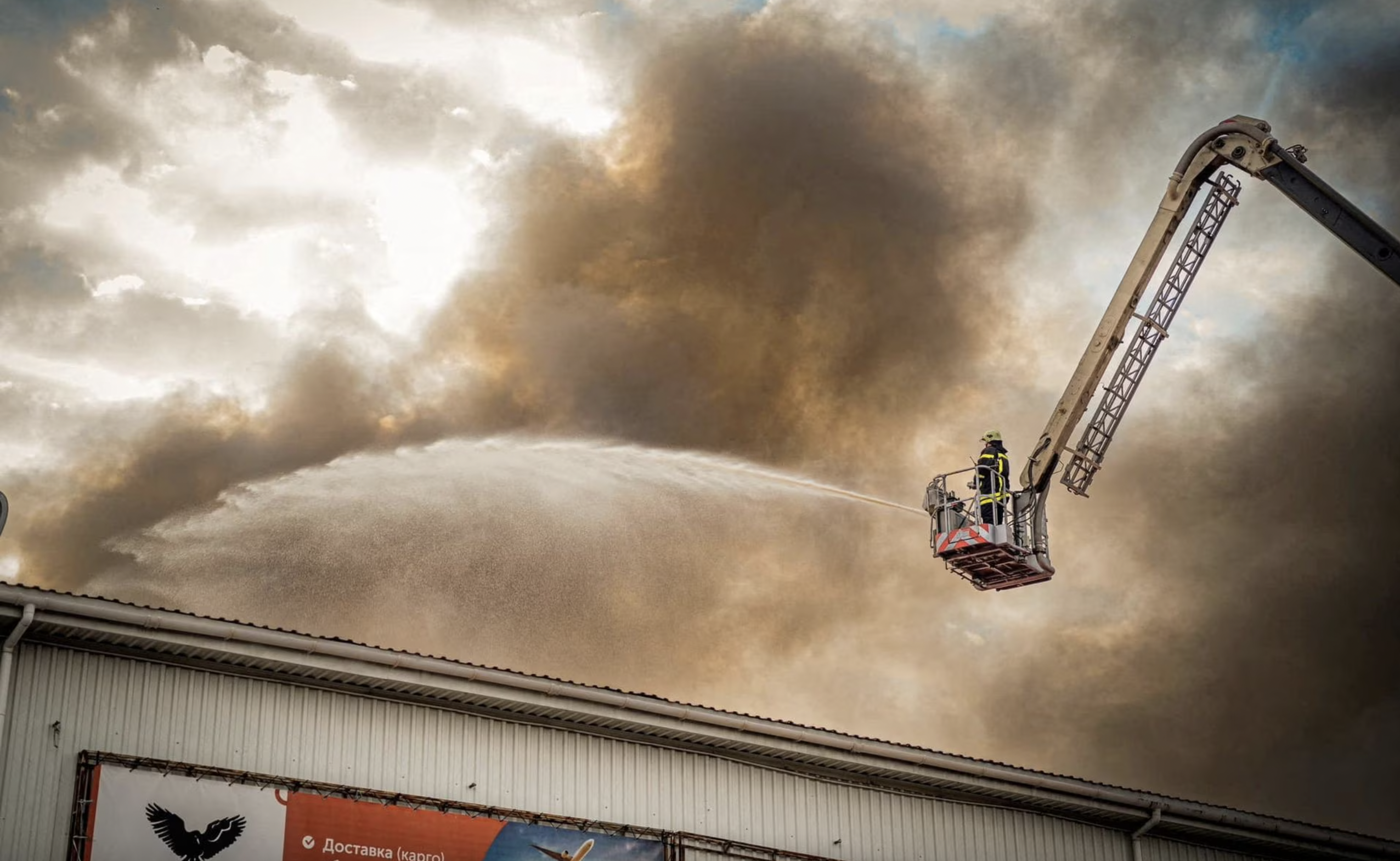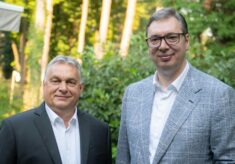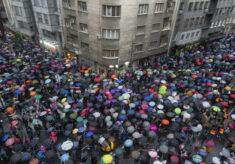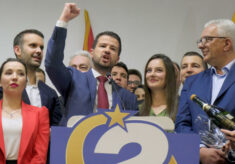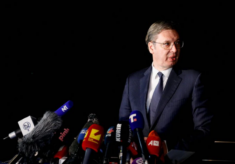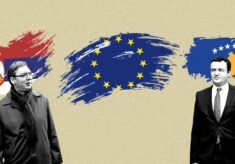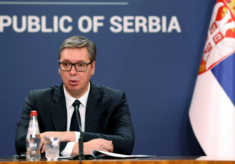For the first time in almost a year, Belgrade and Pristina relaunched long-awaited European Union-led bilateral talks to normalise their relations. Still, they failed to make any real progress.
The dialogue is led by the President of Serbia, Aleksandar Vucic, and Albin Kurti, a left-wing nationalist and reformist who became Kosovo’s Prime Minister after a landslide victory in February’s elections. Kurti and Vucic met for the first time in Brussels. The positions of Belgrade and Pristina remain very distant and the chance of a solution in one of the most intractable territorial disputes seems remote.
After the meeting, hosted by the European Union Special Representative for the Belgrade-Pristina Dialogue, Miroslav Lajcak, and the European Union High Representative for Foreign Affairs and Security Policy, Josep Borrell, Vucic hit out at Kurti. The Serbian leader claimed that Kosovo Prime Minister “demanded” that Belgrade recognises the independence of Kosovo and refused to discuss the implementation of a 2013 agreement that foresees the creation of a Community of Serb-majority municipalities in Kosovo, a key step for Belgrade to advance the talks with Pristina. Kurti “asked me when are you going to recognise independent Kosovo. I told him never, and he exploded,” Vucic said.
Kosovo and Serbia separated de facto after the 1999 war. Pristina declared its independence from Belgrade in 2008 and has been recognised by more than 100 countries. Serbia still considers the territory as its southern province, a position supported by Russia and China and by five EU member countries (Slovakia, Greece, Romania, Spain and Cyprus), which do not recognise Kosovo as an independent state.
On the other side, PM Kurti noted that Pristina “brought four new proposals which were refused by the Serbian side,” and claimed that Vucic refused to even consider them. However, Kurti defined the summit as “constructive,” without elaborating further.
The EU admitted that no concrete results were achieved in the first meeting between Vucic and Kurti, expressing hope that steps forward will be observed at their next meeting, at the end of July. Even if Borrell spoke of a “new momentum” in solving the open issues between Belgrade and Pristina, Lajcak was more outspoken. “Both leaders had a very open and frank exchange on what they each want from the dialogue,” but “it was not an easy meeting,” the EU envoy Miroslav Lajcak admitted.
There are many disputes to be resolved between Kosovo and Serbia. The main one is the refusal of Belgrade to recognise Kosovo’s independence, while Pristina claims that nothing else can be discussed until that reality is accepted by the Serbian side. The latter is fighting to keep Kosovo out of main international organisations and reacted with anger when Pristina managed to get admitted in the World Bank, IMF and FIFA and UEFA. The Serbian Constitution says explicitly that Kosovo is part of Serbia. Pristina also hinted at the possibility of asking Belgrade to pay war reparations and to sue Serbia for genocide.
For Belgrade, one of the most crucial points in the dialogue is the protections of its cultural and religious heritage, the churches and orthodox monasteries in Kosovo, considered by Serbs as the cradle of their nation. Moreover, Belgrade is keeping a strong link with the 120.000 Serbs who still live in the former Serbian province and remain loyal to Belgrade, because their salaries and pensions are paid by Serbia. A 2013 deal brokered by Brussels paved the way for the creation of an association of 10 Serb-majority municipalities in Kosovo, but the agreements has never been implemented as the two sides cannot agree on how it would work, with Pristina fearing the creation of a “Republika Srpska” in Kosovo.
